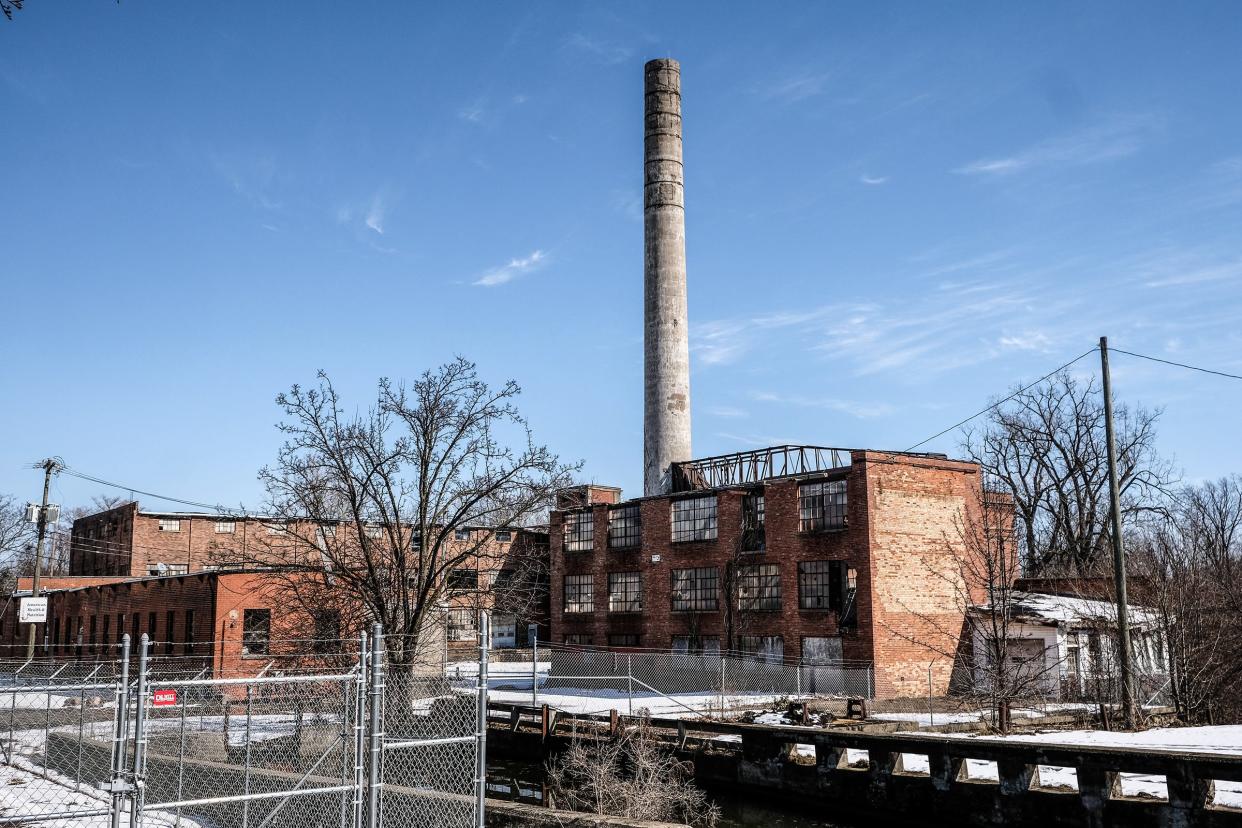Owner of historic Horner Mill fails to demolish buildings; city files lawsuit demanding company follow through

EATON RAPIDS — An agreed-upon deadline for its demolition has passed, but the blighted and crumbling former Horner Woolen Mill is still standing at the corner of M-99 and Main Street.
Now, city officials have again filed suit against its owner demanding that the structures come down.
Utah-based Mill Street LLC, the property's owner, had signed an agreement following a lawsuit by the city saying it would demolish all but one building on the 7-acre site at 224 N. Main St. by the end of the year. The county secured a grant to help pay for that work, but Eaton County Treasurer Bob Robinson said this week that the $653,000 grant from the Michigan State Land Bank Authority was revoked.
City and county officials say the best outcome for the historic property now is if Mill Street LLC, a subsidiary of Utah-based Cache Private Capital Diversified Fund, agrees to deed the property over to the Eaton County Land Bank.
That's a clear possibility, Robinson said.
Mill Street LLC reached out to him this week asking "for a meeting to discuss with their attorneys their signing over the Mill property to the Land Bank," he said in an email. "They have indicated that after investing north of $100,000 last year to progress the project forward, their investors cannot see a way, even with the blight grant in hand, that the project is viable with their out-of-state lens and abilities."
Luke Loveland, vice president of assets and funding operations for Cache Private Capital Diversified Fund, didn't respond to an email or message from the State Journal this week.
Meeting is scheduled to discuss property transfer
County officials have a meeting scheduled for next week "to discuss legalities and arrangements for Mill Street LLC to transfer the property to the Land Bank," Robinson said in a text message on Friday. Land bank leadership has indicated a willingness to take it, he said.
The news comes seven years after the Utah-based company became the property's owner and less than a year after the city dropped a lawsuit against them for failing to care for the site.
Horner Woolen Mills operated in Eaton Rapids from about 1880 to the mid-1950s. The property has been falling further and further into disrepair for several decades.
In July, Loveland told the State Journal his company planned to redevelop at least one building on the site, located at the intersection of Dexter Road and Main Street, into residential housing and mixed-use space.
But this week, Robinson said after county officials secured grant money to help pay for the demolition work, "They never got an approved development plan. We never heard back from them."
In December, officials with Mill Street LLC told Robinson they may not move forward with demolition, he said.
"They wanted to know if the county land bank would be interested in receiving ownership of the property," he said. "I think both the city and the land bank board feel that that would be a viable option because as a land bank, we have a lot more access to grant dollars. We could work directly with the city to come up with a plan."
City officials say land bank ownership best option
The city filed the new lawsuit against Mill Street LLC Thursday, according to Eaton County Circuit Court records.
Eaton Rapids Mayor Pam Colestock agreed land bank ownership of the property is the best option for it, but she and Eaton Rapids City Attorney Cullen Harkness are skeptical its owners will deed it over.
"I hope that this is the path that they will go down," Colestock said. "I think it would be a positive step for sure, because the land bank has a lot more resources at their disposal to be able to clean the property up. However, just knowing how these people have operated in the past, it gives me a little bit of pause. I don't know if they're saying this to try to hopefully delay anything with a lawsuit."
The property is a hazard, Harkness said.
"You've got structures there that have roofs collapsing. There's a smokestack that's falling apart, but then there's just garbage all over the property," he said. "The city's biggest concern is the danger to public safety. Not all those structures are in danger of imminent collapse, but some of them are already caving in."
Robinson said it could cost as much as $3.2 million to remediate and demolish buildings on the property and much of the property is located within a flood plain.
"So, obviously, the owners are facing that and not wanting to deal with it or it appears that way," he said. "It's going to take, I think, something like land banking it to resolve it. I think the community would be better served if they did sign it over."
Contact Reporter Rachel Greco at rgreco@lsj.com. Follow her on Twitter @GrecoatLSJ .
READ MORE:
Making a Michigan winter bucket list? Here are some experiences, places to consider
Why Lansing's BWL is a model for Biden's plan to replace the US stock of lead water lines
This article originally appeared on Lansing State Journal: Owner of Eaton Rapids' Horner Mill fails to demo buildings; city files suit

